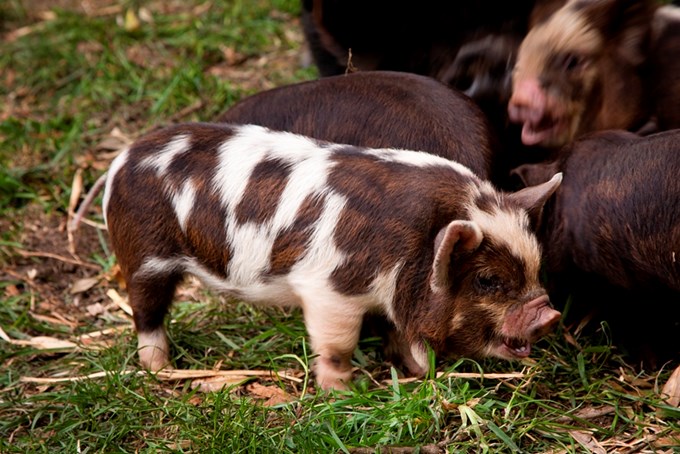This little piggy went into the bush
This little piggy stayed home on the farm
This little piggy ate a tree root and didn’t clean his boots
This little piggy spread kauri dieback
And was chased down by hunters before it got home!
Kauri dieback is an incurable disease that is plaguing our kauri trees. To help stop its spread, Auckland Council and other agencies are focusing their attention on preventative action.
Humans can put their hands up as being key offenders, as we’re not very good at cleaning our muddy boots or gear after a tramp in the bush.
However, recent research by Auckland Council’s Biosecurity Team, in collaboration with Plant and Food Research and researchers from five universities, suggests that we are not the only culprits.

A close examination of pig poo has brought home the bacon, finding that kauri dieback can survive being eaten and digested by these cloven-hoofed creatures.
After testing 888 root fragments found in the pig poo from a captive feeding experiment, one root fragment was found with living kauri dieback disease. DNA analysis from the stomach contents of feral pigs also found they had been eating a raft of closely related ailments that also kill native trees.
This doesn’t mean that humans can squeal with delight. The guts of this research shows pigs are likely to be a relatively minor cause of spreading kauri dieback disease in their poo. This means that the focus still needs to be on managing the spread by humans who trot into our native bush.
More research is also needed to see how likely pigs are to spread kauri dieback and other diseases on their grubby feet and noses.


